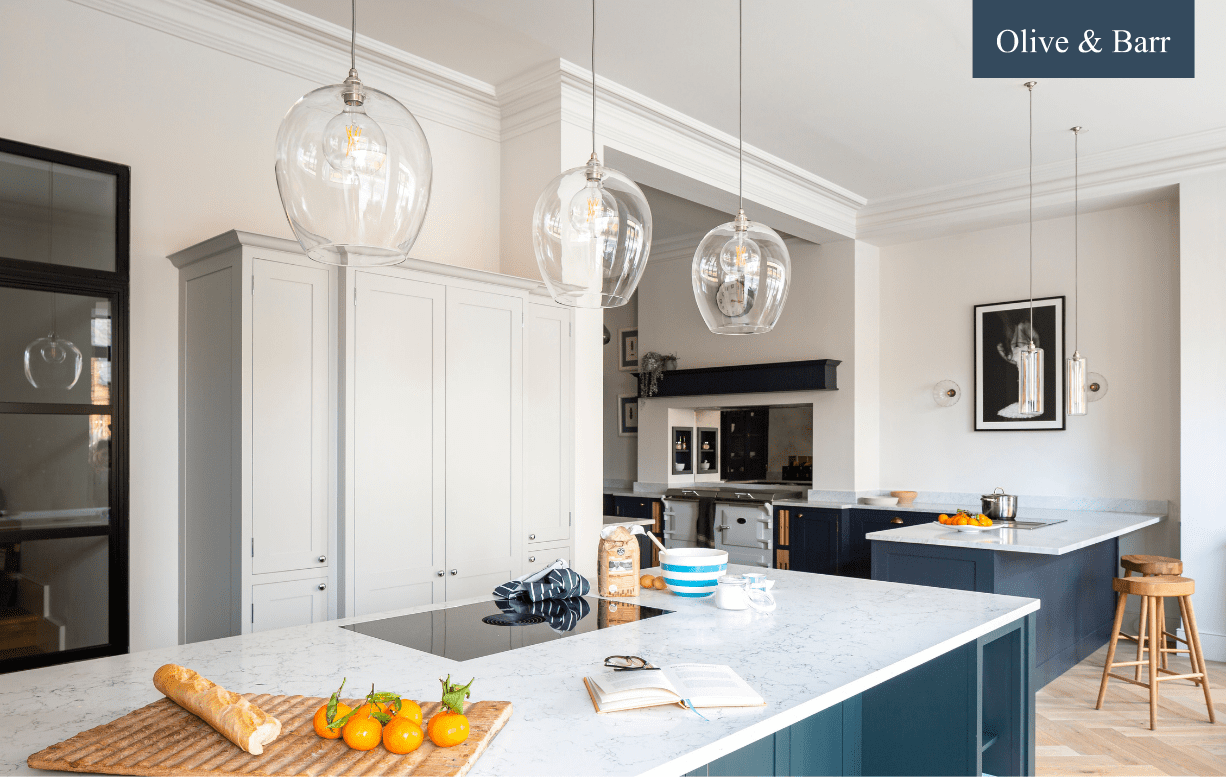
There are not many things worse than waking up to a huge (and somewhat surprising) energy bill, but with prices on the up and up, more and more people are feeling the heat. One month you barely even think about your energy costs and then – BOOM – the next thing you know, you’re running around your house switching off lights, tweaking the thermostat while your SO’s not looking and trying to save on your monthly bills.
That’s where your kitchen habits come in because there are a few simple things that you can do to help keep your energy bill looking relatively friendly. So without further ado, here are our favourite energy-efficient kitchen hacks to keep you – and your bank account – smiling this year:
Clean-Up Your Cooker
Home-cooked food is in a league of its own. Shepherd’s pie, spaghetti bolognaise, Toad in the Hole, it all evokes some seriously delicious nostalgia. The problem is, the more you cook at home, the more grime and grease can build-up on your hobs, grates and oven bulb, all of which creates a tough barrier between your cooking appliance and your pot. Translation: cooking just got a lot less efficient. So to keep your hobs and oven as energy efficient as possible, make sure you give your appliance a deep clean as often as possible. Pro tip: the shinier the better.
Fill Your Freezer
One of the easiest and most efficient ways to reduce your energy bill in the kitchen is to fill up the freezer. Yepp, you read the right. Filling up the freezer with all your favourite foods (or leftovers from your favourite meals) will help you cut your energy consumption. That’s because, believe it or not, trying to keep air cold actually uses more energy than it does to keep food frozen. A lot more energy.
Energy Efficient Appliances
This is less a hack and more of a kitchen overhaul, but updating your appliances, gadgets and electronics to more energy-efficient alternatives is a sure-fire way to reduce your energy consumption – and it’s a great way to make your space more state-of-the-art too. From opting for an Everhot electric stove to adding a Quooker hot tap, upgrading your dishwasher to one with an A+++ rating to introducing LED lighting throughout your kitchen, almost-every modern appliance is focussed on the energy usage.
Use The Right Size Pots
Size matters, at least when it comes to your pots and pans. In fact, using the wrong size pot on your hob can reduce your energy efficiency by around 40%. To solve this issue, try swapping your smaller pans for larger ones, especially when you’re heating liquids on the hob. This is because larger pans have a larger surface area, meaning it will be much quicker to heat up and thus help you use a lot less energy. What’s more, always consider popping a lid on your pots where possible as they’ll not only speed up the heating process but also hold the heat in better.
Tweak Your Fridge’s Temperature
Of all the appliances in your home, the fridge is one that very rarely gets switched off, and in a lot of homes, it stays on all year round. That’s why it’s so important you check your fridge’s temperature routinely. That doesn’t have to mean every week, but definitely once or twice each different season to make sure it’s working at its optimum ability. To do this, simply place a thermometer in the centre of your fridge for around 24 hours, look at the reading and then adjust the temperature dial so that it is sitting somewhere between 3°C and 4°C. It’s also worth putting your fridge in a shady spot away from direct sunlight so that it’s able to run more efficiently without fighting against the sun.
Stop Using Standby
More than any other room in your house, your kitchen appliances are energy wasters, even when you’re not using them. In fact, the average appliance is responsible for 10-15% of your total energy consumption. To reduce this number, the best habit you can get into is switching your appliances off instead of leaving them on standby. So if it has a light, a digital display or even a clock on it, then there’s a pretty big chance it will be using unnecessary energy. From your coffee machine to your Amazon Alexa, your television to your phone charger – start turning them all off at the plug and save yourself a pretty penny.
Full Dishwashers Only
Any-saving rule of thumb is to never run your dishwasher half-empty; always run a full dishwasher. Not only will this reduce your energy and water consumption, but waiting until your dishwasher is fully stacked with dirty dishes will reduce the amount of carbon pollution on your footprint and save on your monthly energy bills.
Small Appliances Are Better
When you’re trying to keep a clutter-free kitchen, the first thing to go is usually your smaller appliances; the cumbersome ones that take up too much space in your cabinets or pantry – and we get it. That said, these smaller appliances can actually help reduce your energy usage a substantial amount. Something as simple as opting for your crock pot or rice cooker will mean you’re using less energy than if you were to use your hobs or oven to cook the same dish.
Use Glass or Ceramic Dishes
And last but by no means least, consider replacing your metal oven dishes with either glass or ceramic alternatives, so long as they are ovenproof. This is because both glass and clay based dishes are better at retaining heat than metal, meaning they’re a lot more efficient in the oven – and able to cook your food that much faster.
Thanks for reading. For more kitchen designs and cooking inspiration, follow us on Instagram and Facebook — or come and visit us at one of our kitchen showrooms.